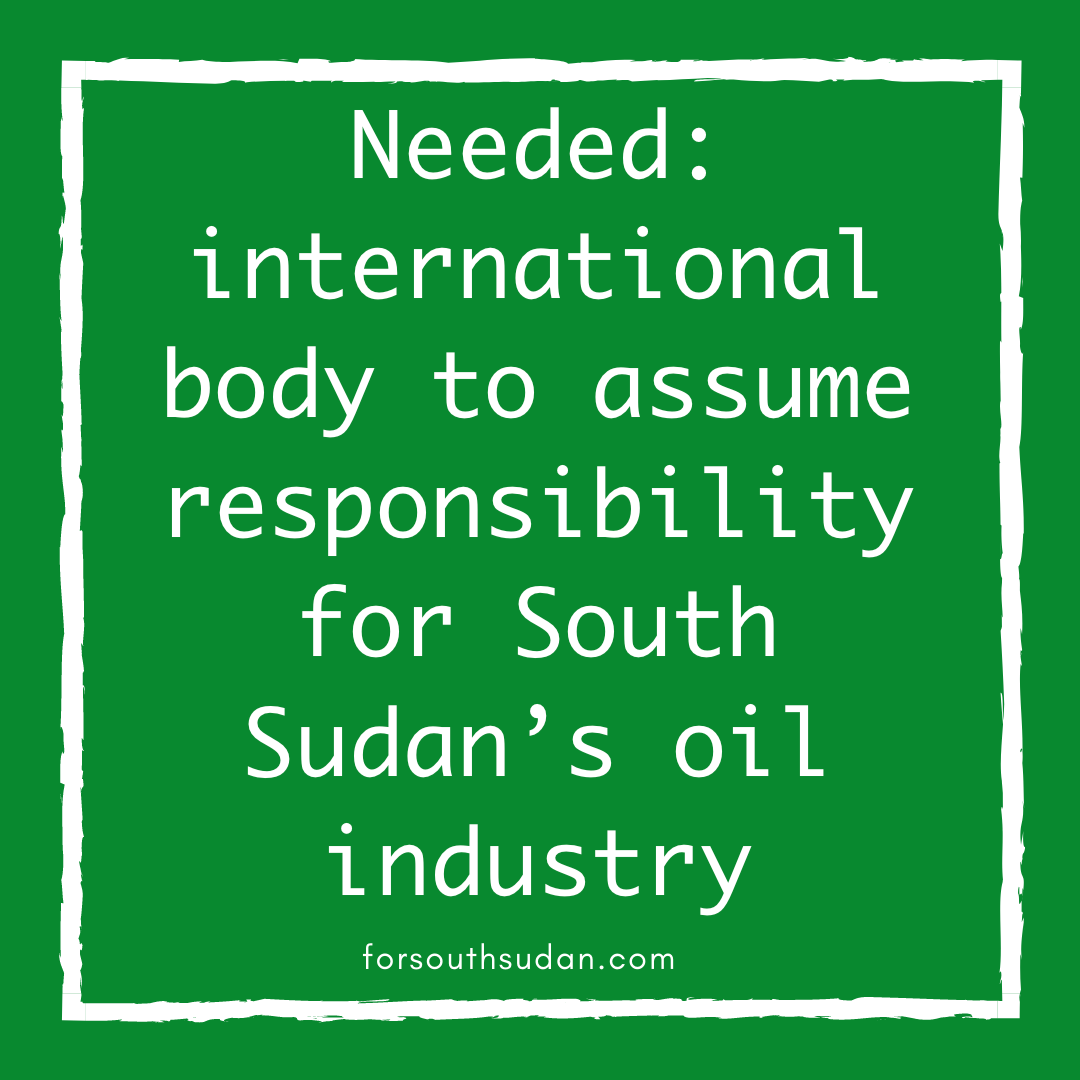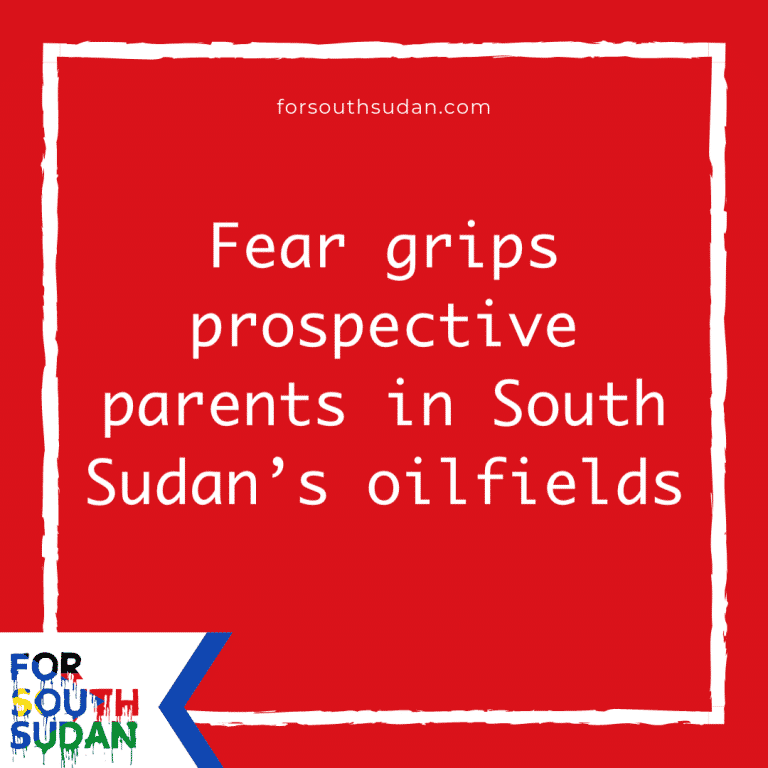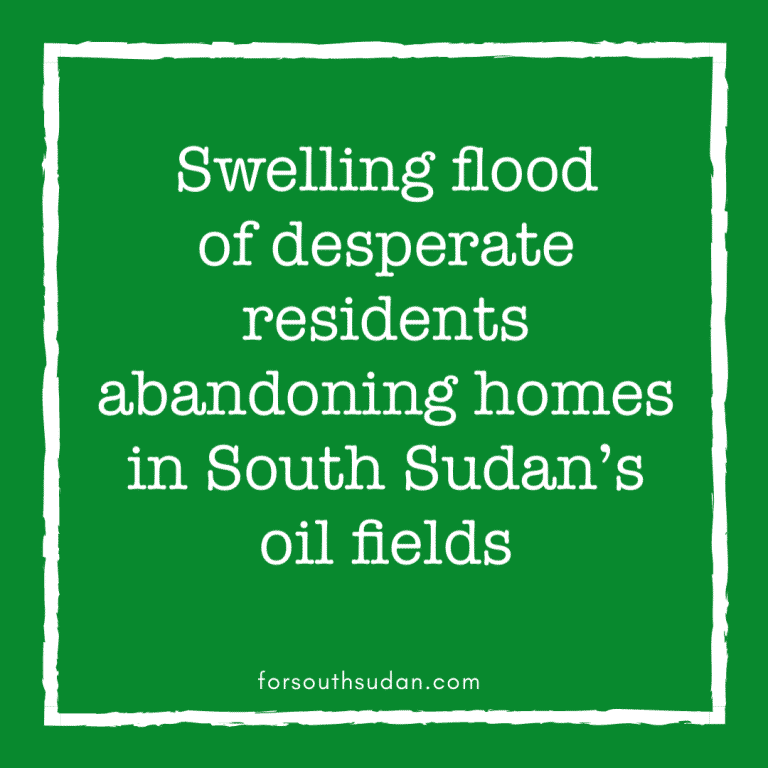Editorial in forsouthsudan.com
April 21, 2020
Plunging prices are bringing very hard times for the world’s oil industry and for the economies of the countries in which it is found. Among the most seriously affected: South Sudan. Some 98% of its government’s revenues stem from oil, making it the most oil-dependent country in the world. Add in the facts that South Sudan’s oil is difficult and expensive to process and transport, and the result is a very bleak future for the country’s industry. Such crises are nothing new for South Sudan’s oil industry – young though it may. Two years after the country gained independence in 2011, the civil wars and other strife roiling the country forced the oil industry to curtail operations. This curtailment frequently took the form of the abandonment and neglect of oil processing facilities and pipelines – rather than their being mothballed in the ways stipulated by national and international regulations. The ramifications of this neglect have manifested themselves over the past few years, in which facilities and pipelines have suffered myriad breakdowns, ruptures, leaks and fires. The only way to ensure that the forthcoming shutdowns and slowdowns expected to grip South Sudan’s oil industry over the next few weeks do not produce further grave oil spills, leaks and fires is to hand over responsibility for the operation of the country’s oil industry to an international body. “The only way” because neither the government of South Sudan nor the companies pumping the country’s oil showed much interest in properly maintaining their facilities and pipelines in the era of relatively strong sales and profits. Their incentive to do such in this era of collapsing sales and painful losses is accordingly virtually nil. This failure to make the necessary investments in oil infrastructure maintenance Is just one of the many practices criticized by The Sentry, the United Nations Environment Programme and other institutions. Other alleged practices: Failure to compensate residents of oil fields for loss of health and livelihood, and for expulsion from their homes by militias supposedly paid by oil companies Failure to adhere to national, international and proprietary regulations and standards of oil production and of treatment of oil wastes. Maintenance and payment of militias and security services that engaged in the killing and harassment of local residents and officials, activists, and CSOs (civil society organizations) This lack of interest in and investments for the maintenance of oil production and transport infrastructure makes it necessary to commission an international body with the operation of this infrastructure. While doing such, this body could also undertake the nation-wide audit of South Sudan’s environment that the government had promised to performed – but still has yet to commence. Other requisite activities:
Humanitarian
supplying of food and water to the 6.5 million South Sudanese
facing
famine. Many of these are being forced to consume water poisoned
with oil wastes.
Conducting of a country-wide checkup – to establish and then treat the effects of lead and other forms of oil-produced poisoning upon South Sudanese health.
Digging of wells deep enough to tap into the uncontaminated layer of fossil water found in stretches of the country




